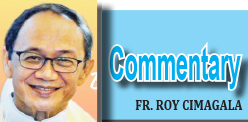TACLOBAN CITY – Health authorities have issued a precautionary red tide warning in parts of Eastern Samar and Samar provinces after shellfish samples tested positive for toxic red tide organisms, according to a July 14 advisory from the Bureau of Fisheries and Aquatic Resources (BFAR).

Confirmatory tests conducted by the BFAR-National Fisheries Laboratory Division revealed that shellfish meat samples collected from Matarinao Bay—which spans the municipalities of General MacArthur, Quinapondan, Hernani, and Salcedo in Eastern Samar—were found positive for paralytic shellfish toxin (saxitoxin).
Likewise, filtered seawater samples from Irong-Irong Bay in Catbalogan City, Samar also tested positive for Pyrodinium bahamense, a species of toxic dinoflagellate that causes red tide and produces the same harmful saxitoxin.
As a precautionary measure, BFAR has advised the public to refrain from gathering, selling, or consuming all types of shellfish and “Alamang” or “Hipon” (small shrimp, Acetes sp.) from the affected bays to avoid possible cases of Paralytic Shellfish Poisoning (PSP). PSP can cause severe symptoms including numbness, dizziness, and in extreme cases, respiratory paralysis.
While the national shellfish bulletin is still pending issuance, the early advisory was released to safeguard lives and allow local government units (LGUs) to act swiftly.
BFAR emphasized, however, that fish, squid, crabs, and shrimp from these waters remain safe to eat provided they are fresh, thoroughly cleaned, and entrails removed before cooking.
The fisheries bureau has intensified monitoring of the affected bays and urged LGUs to take the necessary steps to inform and protect their constituents. The advisory also reminded local officials of their obligation under Section 16 of Republic Act 7160 (Local Government Code of 1991) to uphold the health and safety of residents.
Red tide outbreaks are naturally occurring phenomena caused by harmful algal blooms, which tend to intensify due to favorable weather and water conditions. In the Philippines, they have become recurring threats to coastal communities whose livelihoods depend heavily on shellfish harvesting.
BFAR said it will continue to conduct regular sampling and will issue updates as new test results become available.
(JOEY A. GABIETA)







